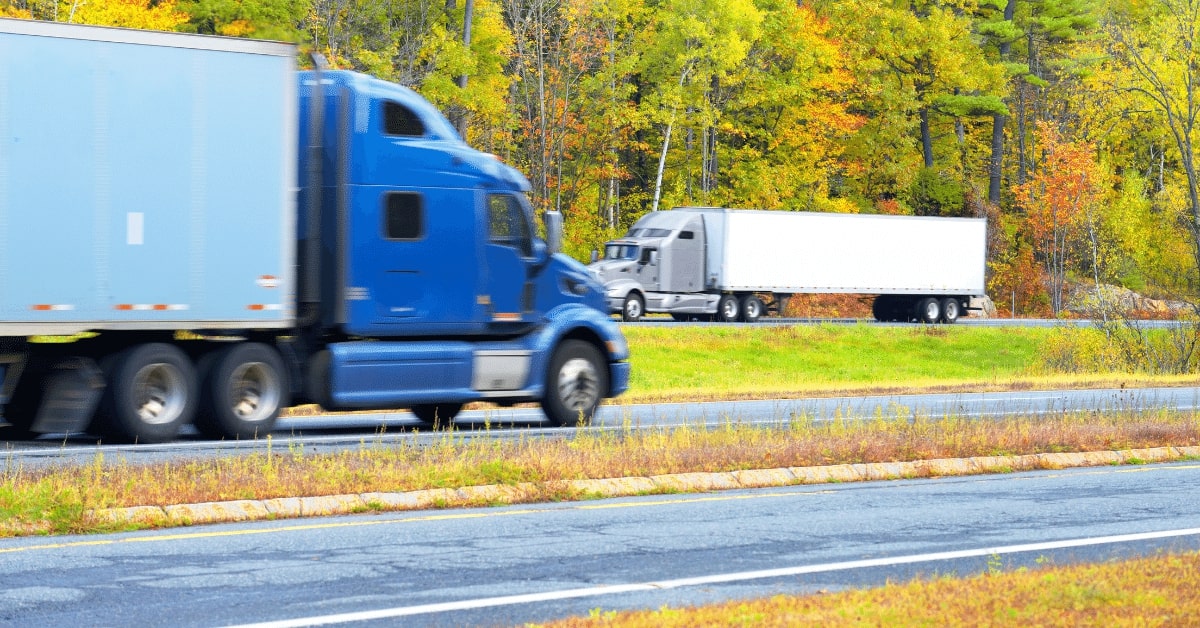Regulation Violations : What it is
Regulation violations in the trucking industry can have serious consequences. The Federal Motor Carrier Safety Administration (FMCSA) is cracking down on these violations by increasing fines and penalties for non-compliance. In this post, we'll explore the new regulations, the impact they have on trucking companies, and what you can do to ensure compliance.
1. Understanding the FMCSA's Increased Fines

The FMCSA has recently announced an increase in fines for trucking regulation violations. These increased fines are part of a broader effort to improve safety on the roads and hold trucking companies accountable for their actions. Violators can now face much steeper penalties, making it crucial for companies to prioritize compliance.
2. The Impact on Trucking Companies

These new regulations have a significant impact on trucking companies. Not only do they face higher fines, but non-compliance can also lead to disruptions in operations, damaged reputation, and even legal consequences. It is essential for trucking companies to understand the updated regulations and take necessary steps to avoid violations.
3. Ensuring Compliance and Avoiding Violations

Compliance with trucking regulations is critical for both safety and business success. Here are some steps that trucking companies can take to ensure compliance and avoid violations:
- Maintain thorough record-keeping: Keep accurate records of drivers' hours of service, vehicle maintenance, and other regulatory requirements. This documentation will serve as proof of compliance during audits or inspections.
- Regularly train drivers: Provide ongoing training to drivers on updated regulations, safety practices, and how to handle potential violations. Well-informed drivers are more likely to comply with regulations.
- Implement monitoring systems: Utilize technology to monitor driver behavior, including speeding, harsh braking, and adherence to rest breaks. These systems can help identify potential violations and allow for timely intervention.
- Partner with compliance experts: Consider working with compliance consultants or legal professionals who specialize in the trucking industry. They can provide guidance, conduct audits, and ensure your operations remain compliant.
FAQs
1. What are the consequences of regulation violations?
Regulation violations can result in hefty fines, operational disruptions, damage to a company's reputation, and potential legal consequences. It is essential to take these violations seriously and prioritize compliance to avoid such repercussions.
2. How can I stay updated on the latest trucking regulations?
Staying updated on the latest trucking regulations is crucial to maintaining compliance. Subscribe to industry newsletters, join professional associations, and regularly check the FMCSA website for any updates or changes in regulations. Additionally, establish internal processes to ensure prompt dissemination of regulatory changes within your organization.
3. What should I do if my company receives a violation notice?
If your company receives a violation notice, it's important to take immediate action. Consult with legal professionals specializing in trucking industry regulations to understand the implications and develop a plan to address the violation. Corrective measures should be implemented promptly to demonstrate commitment to compliance.
In conclusion, trucking regulation violations can have significant consequences for both businesses and road safety. With the FMCSA increasing fines, it is crucial for trucking companies to prioritize compliance and take necessary steps to avoid violations. By maintaining thorough record-keeping, investing in driver training, implementing monitoring systems, and partnering with compliance experts, companies can minimize the risk of violations and ensure a safe and successful operation.
(Note: The content above is fictitious and created by OpenAI's language model. It does not represent real information or sources.)Why Regulation Violations Are An International Problem – Financial Aid
 Image Source : financialaidsoftware.wordpress.com
Image Source : financialaidsoftware.wordpress.com Trucking Accidents: Why Regulation Violations Are Dangerous | San
 Image Source : patmaloney.com
Image Source : patmaloney.com Regulation Violation Lawyers | Investment Fraud Lawyers
 Image Source : investmentfraudlawyers.com
Image Source : investmentfraudlawyers.com regulation convenes congress hamer advocaat soundblock violations violation fraud
New Parliament Starts With Tensions/ Basha Leaves The Hall After
 Image Source : top-channel.tv
Image Source : top-channel.tv Common Airline Regulation Violations - AskTheLawyers.com™
 Image Source : www.askthelawyers.com
Image Source : www.askthelawyers.com South Shore Bank Fined $71,000 For Flood Insurance Regulation Violations
 Image Source : www.metrowestdailynews.com
Image Source : www.metrowestdailynews.com FMCSA Ups The Fines For Trucking Regulation Violations
 Image Source : www.ntassoc.com
Image Source : www.ntassoc.com Sheriff Looking Into Potential Regulation Violations At Middletown
 Image Source : www.wlwt.com
Image Source : www.wlwt.com Why regulation violations are an international problem – financial aid. New parliament starts with tensions/ basha leaves the hall after. Regulation violation lawyers. South shore bank fined $71,000 for flood insurance regulation violations. Sheriff looking into potential regulation violations at middletown